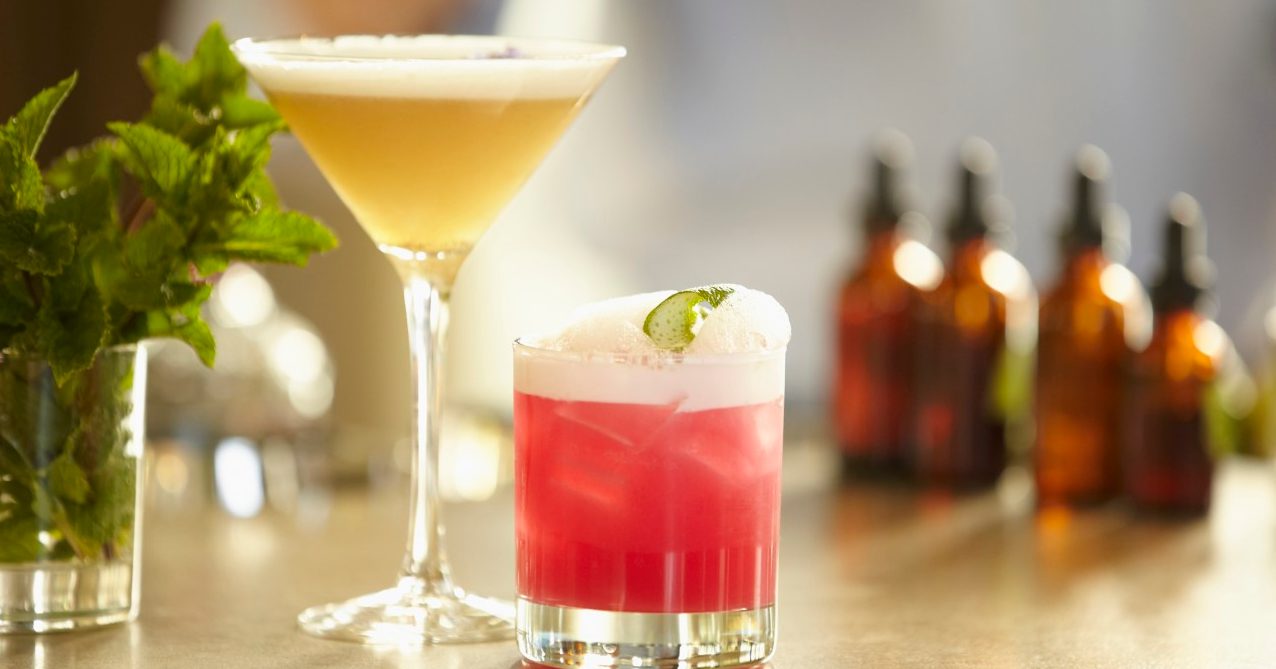Alcohol and Cancer

The link between alcohol and cancer might not be obvious, but you should add cancer to the list of reasons not to over-imbibe.
Many cancers are mysterious — and can’t be linked to any particular behavior. Some behavior, like smoking cigarettes, is obviously risky. We also know that drinking can be risky for all kinds of reasons. But few people put the risk of cancer from drinking alcohol together in their minds.
In fact, in a October 2017 survey, fewer than one in three adults identified alcohol as a risk factor for cancer (and most forgot about obesity, too).
Alcohol and cancer
The American Society of Clinical Oncology, which represents many of the nation’s top cancer doctors, issued a statement soon afterwards, reminding Americans of evidence that even one drink a day can slightly raise a woman’s risk of breast cancer. That same daily drink — or two drinks a day for men — promotes a common type of esophageal cancer.
YOU MIGHT ALSO LIKE: What Kind of Drinker Are You?
Heavy drinkers run much higher risks, not just of accidents and liver damage, but of cancer as well. You’re a heavy drinker if you’re a woman downing eight or more drinks a week or 15 or more for men.
According to a National Institute on Alcohol Abuse and Alcoholism (NIAAA) combined analysis of 200 studies, the tightest ties between alcohol and cancer are to cancers related to the mouth and throat. When alcohol touches bacteria in your mouth, it changes into acetaldehyde, which alters your DNA. The fact that many drinkers also smoke cigarettes makes the risks greater. And your risk of stomach, colon, rectum, liver, breast, and ovarian cancer all seem to be higher if you drink alcohol, even if you stick to 25 grams of alcohol, or about two drinks a day. In fact, current estimates suggest that cancers associated with alcohol cause nearly 6 percent of all cancer deaths worldwide.
“Wait,” you may be thinking, “Isn’t red wine good for you?” Women who drink one glass of red wine every day, and men who drink two, may get some protection against heart disease, diabetes, and obesity — but probably not cancer. In fact, that wine may increase your risk of at least one cancer — of the breast.
Breast cancer
Just one small glass of wine or beer every day — about 10 grams of alcohol — increases premenopausal breast cancer risk by 5 percent and postmenopausal risk by 9 percent, according to a report analyzing multiple studies with data on 12 million women. Some evidence suggests the risk is stronger among women who start drinking before their first pregnancy — a good reason not to overdo it in college or your fun-loving twenties. Drinking more than six grams of alcohol a day if you’ve already had breast cancer can increase the chance of a recurrence in women past menopause, other evidence suggests.
Colorectal cancer
Imbibing more than one drink a day increases your chances of this colon cancer, and the more you drink, the greater your risk, according to a meta-analysis of 61 studies.
Pancreatic cancer
You don’t want to get pancreatic cancer, since you may well die within months of diagnosis. Heavy drinking is a major cause of chronic pancreatitis and a risk factor for type 2 diabetes — and both of these are linked to pancreatic cancer. In fact, heavy drinking may increase your risk of pancreatic cancer by 19 percent. Add in smoking, and you could bring on the tumor earlier. Quitting smoking and drinking will help, but your body will still carry the damage for a decade.
The evidence of a link between alcohol consumption and colon, rectum, stomach, prostate, and endometrial cancer remain controversial, the NIAAA reports, largely because scientists haven’t pinned down the mechanism within the body. But we can see signs of a link in studies of big populations.
The bottom line is that heavy drinking is terrible for you, and daily alcohol is bad for people with cancer risk.
Updated:
March 30, 2020
Reviewed By:
Christopher Nystuen, MD, MBA